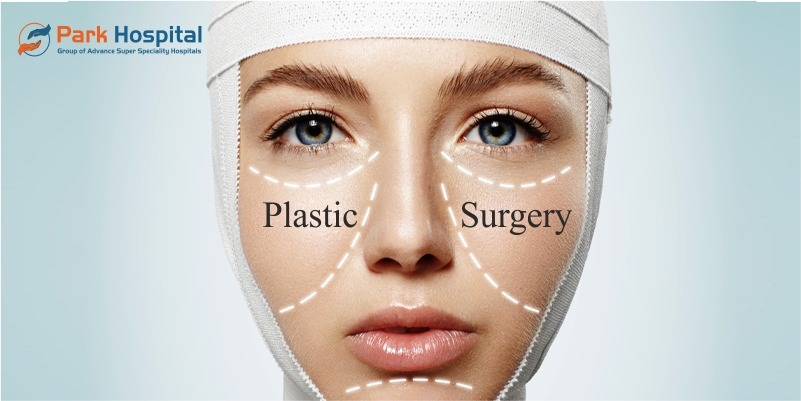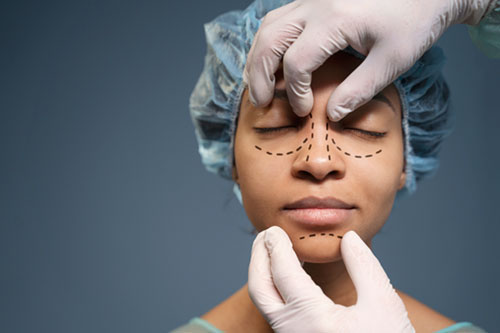The Effect of Self-Image on Decision-Making: Reasons That Numerous People Seek Plastic Surgery for Physical Improvement
The interaction between self-image and decision-making is a complicated phenomenon, especially obvious in the enhancing fad of individuals choosing plastic surgery as a way of physical transformation. Motivated by a desire to fulfill social assumptions and personal perfects, several people come to grips with issues of self-confidence that can considerably affect their choices. As exterior stress from social media sites and cultural norms heighten feelings of insufficiency, an important inquiry arises: what are the underlying psychological aspects that drive this quest of modified appearances, and what implications do these decisions hold for individuality and wellness?
Recognizing Self-Image
Self-image describes the mental image and perception an individual holds concerning themselves, incorporating aspects such as physical look, characteristic, and general self-regard - mommy makeover rancho cucamonga. This internal depiction substantially influences how individuals engage with the world and can be a driving force behind different life options, including the choice to go through plastic surgery
A favorable self-image usually associates with higher self-esteem and a feeling of confidence, cultivating a proactive approach to life. Conversely, a negative self-image might result in sensations of insufficiency and frustration, prompting people to look for outside solutions to perceived problems. This mission for renovation can show up in the desire for physical makeover via cosmetic treatments.
In addition, cultural influences and social standards play a pivotal role fit self-image. The prevalent nature of media and peer comparisons can amplify feelings of instability, encouraging individuals to modify their look in search of acceptance or approval. Comprehending these characteristics is important in comprehending the motivations behind plastic surgery. Eventually, self-image is a complex construct that links with psychological wellness, social assumptions, and personal goals, making it a vital variable in the decision-making procedure concerning aesthetic enhancements.
Emotional Aspects at Play
Numerous psychological aspects influence a person's decision to pursue cosmetic surgery, frequently rooted in much deeper cognitive and emotional procedures. One considerable variable is low self-confidence, which may emerge from unfavorable self-perceptions or frustration with one's look. People with diminished self-respect might think that altering their physical features will boost their overall worth and approval in social contexts.
Furthermore, the principle of body dysmorphic disorder (BDD) plays a vital duty. Individuals enduring from BDD experience a compulsive concentrate on perceived problems in their look, leading them to seek medical intervention as a service. This uncontrollable need for improvement can significantly distort their self-image, driving them to seek treatments regardless of the capacity for adverse end results.

Societal Pressures and Expectations
A considerable impact on individuals' decisions to undergo cosmetic surgery stems from social stress and expectations that pervade modern culture. In an era dominated by social media sites and consistent visual exposure, these details idealized criteria of beauty are often showcased, developing a pervasive environment where physical appearance is intensely redirected here inspected. Such standards usually dictate what is thought about eye-catching, leading people to really feel urged to adhere to these ideals.
Moreover, the normalization of aesthetic improvements in preferred culture further aggravates these pressures - mommy makeover rancho cucamonga. Influencers and celebrities honestly discussing their procedures can develop a perception that such alterations are not just acceptable however desirable. This phenomenon can stimulate sensations of inadequacy in individuals who might feel their natural look does not straighten with social criteria
In addition, the impact of peer groups can not be forgotten. Individuals may come across straight or indirect pressure from good friends or family, bring about a common validation of plastic surgery as an acceptable methods to attain an idyllic self-image. Consequently, these social assumptions can substantially impact personal decision-making procedures, frequently eclipsing inherent motivations for self-improvement and promoting a culture where physical change is pursued as a remedy for perceived imperfections.

Case Research Studies and Personal Stories
Several individuals have shared their personal journeys pertaining to plastic surgery, revealing a complex interaction in between self-perception and societal impacts. For circumstances, a 34-year-old female defined just how years of feeling inadequate due to her nose led her to look for nose job. She reported that after the treatment, her self-confidence rose, allowing her to engage even more easily in social situations and progress her job. Yet, she acknowledged that her choice was greatly influenced by media representations of beauty.
Similarly, a male person in his late twenties recounted his battle with body dysmorphic condition, which triggered him to seek liposuction surgery. His experience highlighted not only a need for physical change but likewise a desire for approval among peers. Post-surgery, he expressed a restored sense of self-respect, albeit with the awareness that interior recognition ought to come before exterior adjustments.
These case research studies emphasize a wider pattern: people commonly check out cosmetic surgery as a pathway to improved self-image. Nonetheless, the narratives likewise disclose a critical perspective on the stress and expectations that shape these choices, recommending that individual tales are deeply intertwined with social norms and values.
Alternatives to Plastic Surgery

Skincare therapies, consisting of chemical peels and microdermabrasion, can enhance skin structure and tone, dealing with worries like acne scars or uneven pigmentation. In addition, laser therapy is an efficient approach for targeting particular skin problems, such as sun damage or vascular lesions, advertising a more younger look.
For those seeking body change, non-invasive fat reduction techniques like CoolSculpting can help get rid of persistent fat down payments without surgery. Fitness programs and nutritional therapy are additionally vital devices for people aiming to attain a healthier body photo. Eventually, these alternatives can provide considerable outcomes while aligning with personal convenience levels and preferences, cultivating a favorable self-image without the permanence of plastic surgery.
Final Thought
People often look for physical change in an attempt to enhance self-confidence and straighten with viewed criteria of charm. By discovering options and promoting a healthier self-image, people may find extra sustainable pathways to self-acceptance and well-being.
The interplay between self-image and decision-making is a complex sensation, specifically apparent in the boosting fad of people opting for cosmetic surgery as a way of physical transformation.Numerous mental aspects affect a person's decision to pursue cosmetic surgery, typically rooted in much deeper psychological and cognitive processes.A considerable impact on people' choices to go through cosmetic surgical procedure stems from social pressures and expectations that pervade contemporary culture. Individuals may run into direct or indirect pressure from close friends or household, leading to a public recognition of cosmetic surgical treatment as an acceptable ways to accomplish an idyllic self-image.Many individuals have actually shared their individual trips relating to cosmetic surgery, exposing a complicated interaction in between self-perception and social impacts.